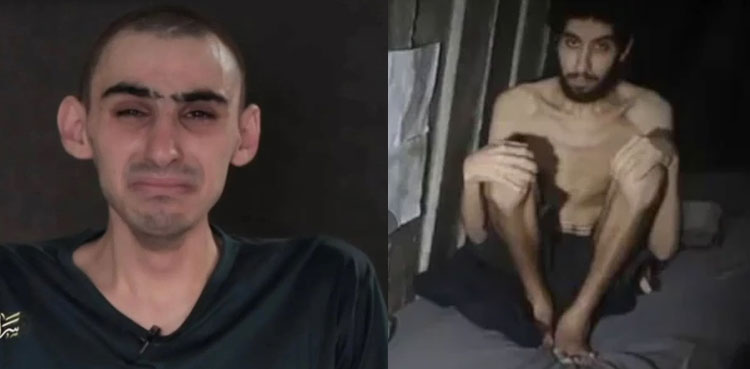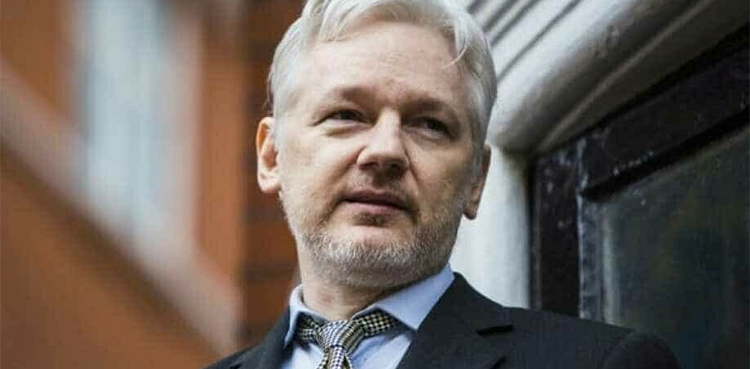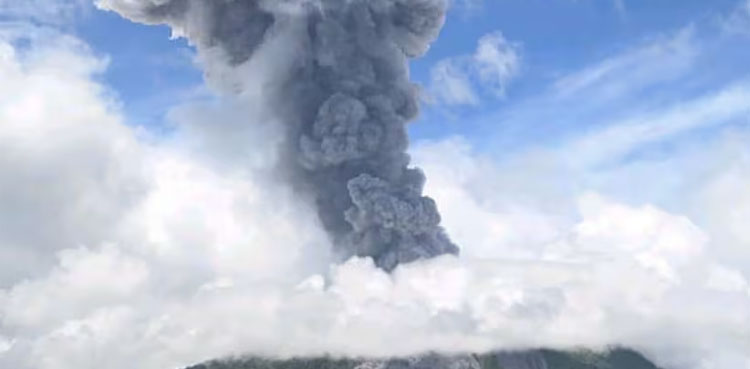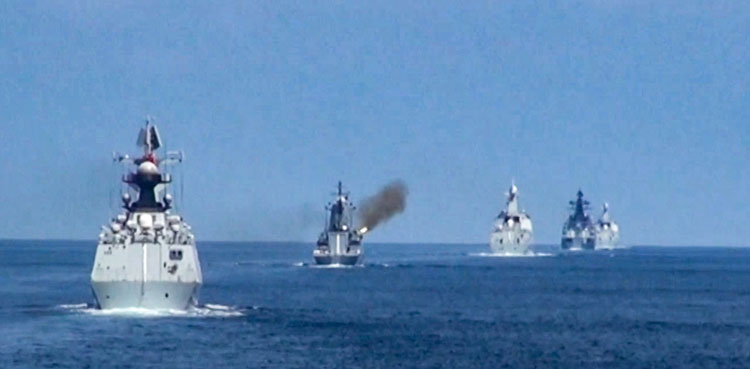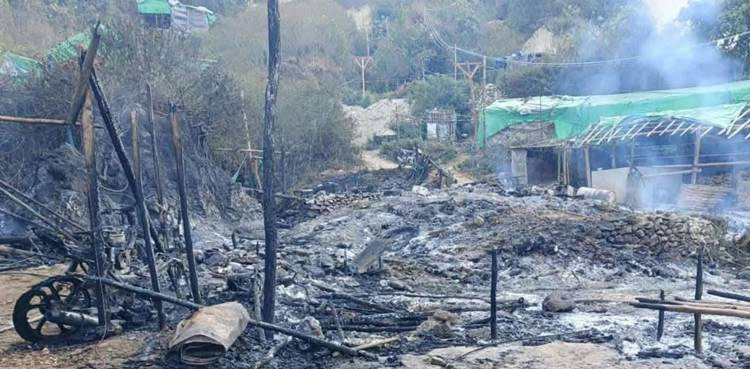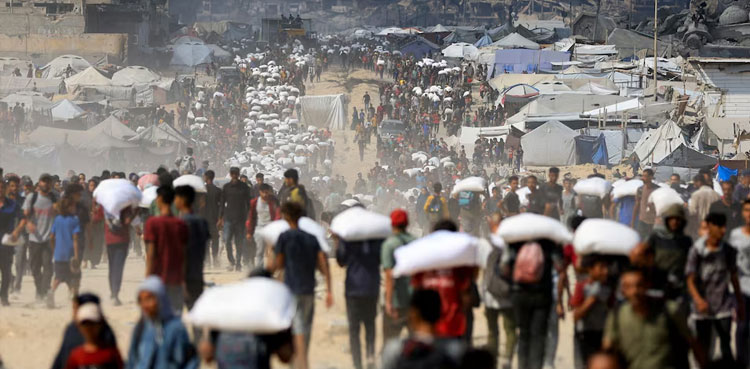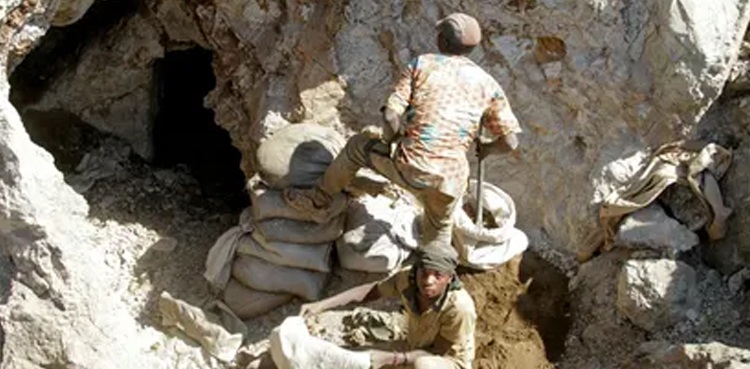Jerusalem: Israeli Prime Minister Benjamin Netanyahu expressed “profound shock” over videos showing two emaciated hostages in Gaza, with the EU also demanding the release of all remaining captives after nearly 22 months of war.
Over the past few days, Hamas and its ally Islamic Jihad have released three videos showing two hostages seized during the October 7, 2023 attack on Israel that triggered the ongoing war in Gaza.
The images of Rom Braslavski and Evyatar David have sparked strong reactions among Israelis, fuelling renewed calls to reach a truce and hostage release deal without delay.
🔴 Kudüs Tugayları’nın yayınladığı videoda, esir İsrail askeri Rom Braslavski’nin sözleri:
“Açlıktan ölüyorum. Yiyecek yok, su yok.
“Sağlığım hızla bozuluyor. Netanyahu tamamen sorumlu.” pic.twitter.com/5QEnYyUafU
— HURMA (@HurmaEdit) August 1, 2025
A statement from Netanyahu’s office late Saturday said he had spoken with the families of the two hostages.
Netanyahu “told the families that the efforts to return all our hostages are ongoing”, the statement added.
Earlier in the day, tens of thousands of people had rallied in the coastal hub of Tel Aviv to urge Netanyahu’s government to secure the release of the remaining captives.
⚡️BREAKING: Al-Qassam Brigades released footage of Israeli captive Evyatar David:
“He hoped to be released by a deal.
The occupation government has decided to starve them.
They eat what we eat, they drink what we drink.
pic.twitter.com/OHo0K9GVWb— Suppressed News. (@SuppressedNws) August 1, 2025
In the clips shared by the Palestinian Islamist groups, 21-year-old Braslavski, a German-Israeli dual national, and 24-year-old David both appear weak and malnourished.
There was particular outrage in Israel over images of David who appeared to be digging what he said in the staged video was his own grave.
The videos make references to the dire humanitarian conditions in Gaza, where UN-mandated experts have warned a “famine is unfolding”.
Israel has heavily restricted the entry of aid into Gaza, which was already under blockade for 15 years before the war began.
Many desperate Palestinians are left to risk their lives under fire seeking what aid is distributed through controlled channels.
On Sunday, Gaza’s civil defence agency said Israeli fire killed nine Palestinians who were waiting to collect food rations from a site operated by the US- and Israeli-backed Gaza Humanitarian Foundation (GHF) near the southern city of Rafah.
“The soldiers opened fire on people. I was there, no one posed any threat” to the Israeli forces, 31-year-old witness Jabr al-Shaer told AFP by phone.
There was no comment from the military.
Five more people were killed near a different GHF aid site in central Gaza on Sunday, while Israeli attacks elsewhere killed another five people, said civil defence spokesman Mahmud Bassal.
– ‘Emaciated and desperate’ –
Israeli newspapers dedicated their front pages on Sunday to the plight of the hostages, with Maariv decrying “hell in Gaza” and Yedioth Ahronoth showing a “malnourished, emaciated and desperate” David.
Left-leaning Haaretz declared that “Netanyahu is in no rush” to rescue the captives, echoing claims by critics that the longtime leader has prolonged the war for his own political survival.
Braslavski and David are among the 49 hostages taken during Hamas’s 2023 attack who are still being held in Gaza, including 27 the Israeli military says are dead.
Most of the 251 hostages seized in the attack have been released during two short-lived truces in the war, some in exchange for Palestinians in Israeli custody.
Hamas’s 2023 attack resulted in the deaths of 1,219 people, according to a tally based on official figures.
Israel’s campaign in Gaza has killed at least 60,430 people, mostly civilians, according to figures from the Hamas-run territory’s health ministry, deemed reliable by the UN.
The Palestine Red Crescent Society said one of its staff members was killed in an Israeli attack on its Khan Yunis headquarters, in southern Gaza.
An AFP journalist aboard a French army plane airdropping aid on Saturday saw widespread destruction at the Gaza City port and elsewhere in the territory’s north, with entire neighbourhoods levelled.
